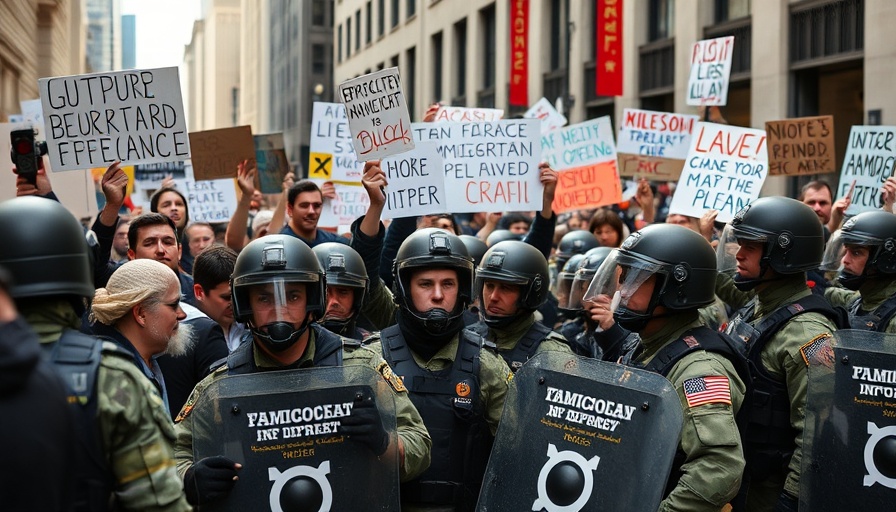
Trump's National Guard Decision Sparks Legal and Political Firestorm
In a pivotal moment for California politics, President Trump’s deployment of the National Guard in Los Angeles has ignited a fierce legal battle. The conflict centers around the president’s powers, escalating tensions with California Governor Gavin Newsom, who contests that Trump’s actions were both illegal and overreaching. Senior U.S. District Judge Charles Breyer previously ruled against Trump, stating his activation of the guard violated the Tenth Amendment, which reserves states' rights to manage their own National Guard units.
The situation took a twist when a federal appeals court issued a temporary stay on this ruling, allowing Trump to retain control until a crucial hearing is scheduled for June 17. This judicial intervention highlights the ongoing struggle between federal authority and state jurisdiction—a conflict that transcends party lines and poses questions about the role of the National Guard in domestic issues.
The Implications of Executive Power and National Guard Deployment
The implications of Trump’s actions are significant, raising concerns about the precedent it sets. Historically, governors have held authority over their states’ National Guards, which are meant to respond to local emergencies rather than serve as tools of federal power over immigration policy. This legal battle may not just affect California, but also shape how future administrations interact with National Guard units nationwide.
What This Means for California and Beyond
Amid this turmoil, Newsom’s stance echoes the sentiments of many who believe that unchecked use of federal troops could lead to increased tensions and civil unrest. Critics argue that deploying the National Guard to augment immigration enforcement could exacerbate community fears and disrupt social order. As the June hearing approaches, all eyes will be on California to see how this high-stakes political drama unfolds.
Actions to Consider: Engage with Local Politics
Citizens concerned about the implications of this legal tussle are encouraged to engage with local political discussions. Understanding how state and federal authorities interact can empower individuals to advocate for their rights and hold leaders accountable.
 Add Row
Add Row  Add
Add 




Write A Comment